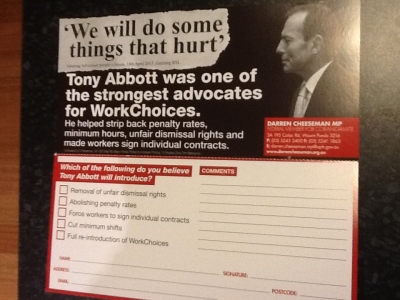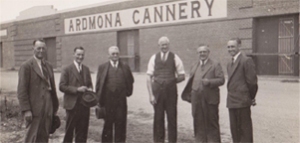 Australians ranks amongst the hardest working in the first world, ranking fourth for long hours worked among 34 OECD nations.
Australians ranks amongst the hardest working in the first world, ranking fourth for long hours worked among 34 OECD nations.
Turkey ranked No. 1, with almost half its population working more than 50 hours a week. Mexico and Israel followed. The Netherlands, Sweden, Denmark and Russia had the best work-life balance with only 1 or 2 per cent of employees working very long hours.
And that’s just the blokes, with one in 5 men working more than 50 hours per week. At least Aussie sheilas are doing it better; or at least better than Turkey or Mexico . . . or are we?
TAKE a bow, ladies – Australian women are among the world’s hardest-working on the home front.
A report has found that of females in 29 countries, Australians rank fifth in the number of hours each day spent doing unpaid work.
Although this article from the Herald Sun treats the issue somewhat flippantly, unpaid work does mean one hell of a lot more than running the vac’ around the lounge room, it’s the carers, the volunteers without whom organisations could not exist . . . you know who you are.
Australian women also have the least time to follow leisure pursuits.
It will come as no surprise to anyone that “WORK is killing off the great Australian weekend and starving kids of family time.”. Below of course pertains not just to the traditional family, mum, dad and kids but to all working people who are socially deprived due to the impossibility of anything resembling a life/work balance.
Australians are now three times more likely to work weekends than they were 20 years ago – one in three workers now spends Saturday or Sunday on the job.
New research exposes the true cost of weekend work, as it steals leisure time with friends and family all week long.
When fathers work weekends, mothers get less quality leisure time with their children as they catch up on chores.
But when women work Saturdays, the blokes spend more time with their mates.
Weekend work has nearly trebled over the past 20 years, from 12 per cent of workers in 1993 to 33 per cent today, Australian Bureau of Statistics data shows.
Half of all business owners, 42 per cent of contractors and 30 per cent of employees now spend their weekends in the workplace, rather than the backyard or beach.
And one in four workers is on call or on standby, as technology contaminates leisure time with messages and emails from the boss.
The Social Policy Research Centre at the University of NSW has calculated the “knock-on” impact of weekend work on leisure time, by analysing ABS data sourced from time-use diaries filled in by more than 4000 workers.
When men work weekends, the researchers found, “this comes at the cost of mother-child leisure time”.
The study’s lead author, Associate Professor Lyn Craig, said weekend work was bad for family bonding, friendship and community ties.
“More people are working shifts because lots of jobs are becoming 24/7, like retail,” she said yesterday.
“And workers are having their weekends encroached upon more and more by technology, so it seems harder to have a boundary between work and home.
“It’s not good for family bonding, to not have parents available to their kids when their kids are available.”
The research shows both parents spend less quality time with their kids if either mum or dad works weekends.
The above article is from new.com, and published in August last year.
This is the reality of working Australia. Also to be kept in mind is that according to the ABS, “One quarter of all employees earned $588.00 or less“.
More female employees were employed part-time (52.3%) than full-time (47.7%). Average weekly total cash earnings were $1,278.40 for full-time females and $562.40 for part-time females.
Eric Abetz: “We risk seeing something akin to the wages explosion of the pre-accord era when unsustainable wage growth simply pushed thousands of Australians out of work.”
Steven Walters, a chief economist with JP Morgan, says “. . .wages growth is the lowest it has ever been.”
Prime Minister Tony Abbott is under pressure from his backbench to address ”job-killing” weekend and holiday penalty rates, with 10 Coalition MPs telling Fairfax Media the controversial issue cannot be ignored.
Does this make any sort of sense? Since the Murdoch media installed Tony Abbott as Prime Minister, Abbott’s Mr. No persona has been reinvented as Mr. Slash and Burn with thousands of jobs thrown in the dust bin in pursuit of Abbott’s ideologies. Who exactly is the job-killer Tony?
Yet according to Abbott and Abetz it’s the kids, the women trying to support themselves and their families . . .and who are prepared to work weekends and holidays, and while knowing that they must sacrifice valuable family time in order to achieve this; it’s they who are in the “job-killing” business.
Yes you have it, according to the Liberals, Australians who work some of the longest hours of all OECD countries, and with the worst life/work balance, especially pertaining to women who seem to have ZERO time to do anything else except work . . . paid and unpaid; these same hard-working Aussies according to Abbott and Abetz are “in the job-killing business”. Clearly the solution is to pay them less.




